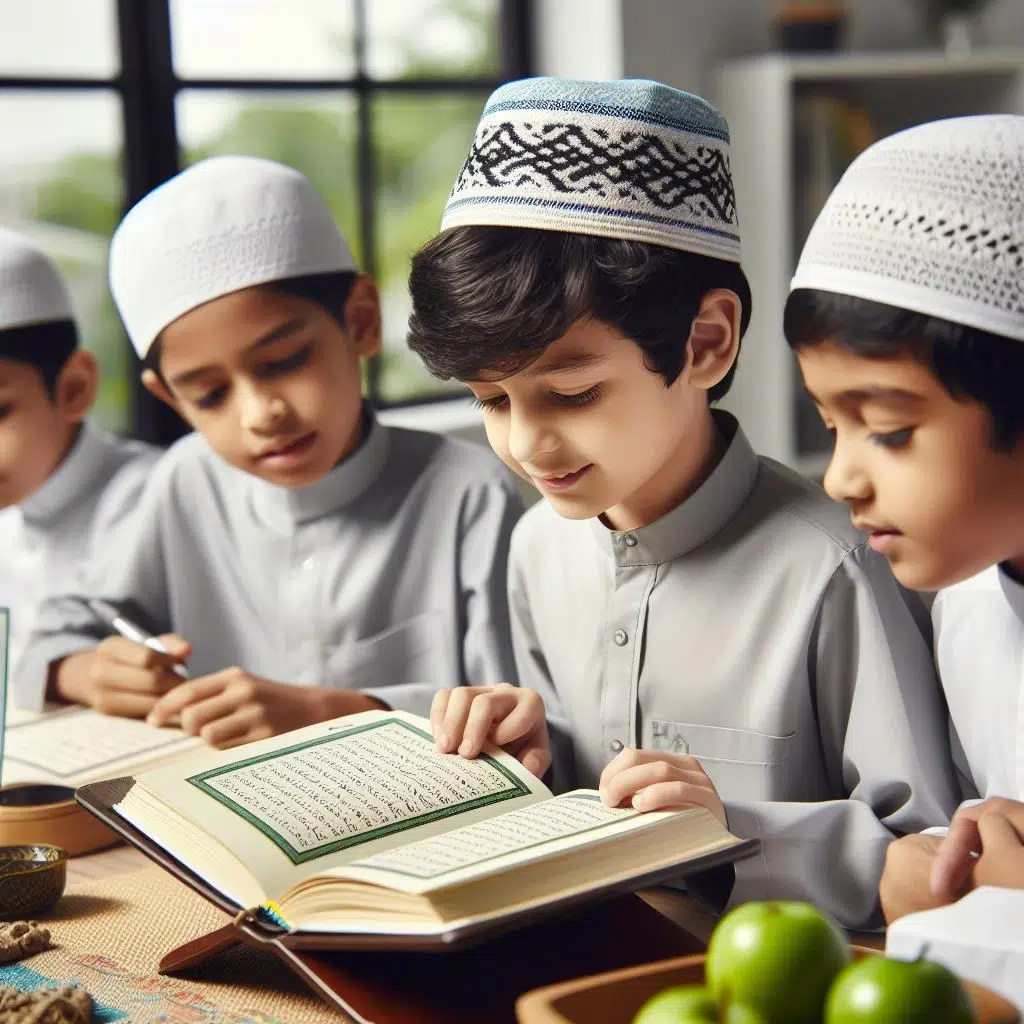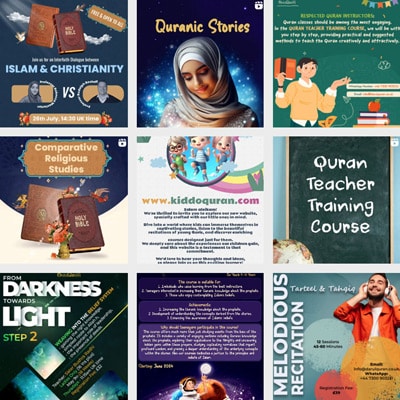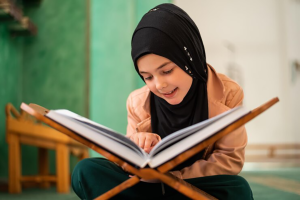He who is in charge of a part of Mulims` affairs and does not perform it as good as he does for his personal work, he will not smell Paradise at all.
Prophet Muhammad (S)
Table of Contents
ToggleThe family unit holds significant importance in Islamic teachings and the Holy Quran. It serves as the foundation for society, and the teachings regarding family ethics are comprehensive and profound.
This section will delve into the various aspects of family values, relationships, and responsibilities as outlined in Quran, shedding light on the wisdom and guidance it offers for building and maintaining strong family structures.
Importance of Family Values in Islam
Foundation of Society
Family is the foundation of society in Islam, as emphasized in the Sacred Quran and teachings of Prophet Muhammad (S).
The importance of family values in Islam cannot be overstated, as they provide the necessary framework for the growth and development of a strong and cohesive society.
In Islam, the family is considered to be the cornerstone upon which society is built. The Holy Quran teaches that family relationships are sacred and should be treated with respect and care.
In Surah Al-Ahzab, verse 70-71, Allah says, “O you who have believed, protect yourselves and your families from a Fire whose fuel is people and stones.” This verse highlights the responsibility of individuals to protect and care for their families, as they are the most precious gift from Allah.
Prophet Muhammad (S) also emphasized the importance of family values in his teachings. He once said, “The best of you are those who are best to their families, and I am the best among you to my family.” This hadith highlights the importance of treating one’s family with kindness, compassion, and respect.
In Islam, the family is seen as a source of strength and support for individuals. It is within the family unit that individuals learn important values such as love, empathy, and responsibility.
Children are taught the importance of respecting their parents and elders, while parents are encouraged to provide guidance and support to their children.
Furthermore, the family is also the first place where individuals learn about their faith and practice their religion. Parents are responsible for teaching their children about the importance of prayer, fasting, and other religious obligations.
The Noble Quran emphasizes the importance of passing down religious knowledge from one generation to the next, as mentioned in Surah At-Tahrim, verse 6, “O you who have believed, protect yourselves and your families from a Fire whose fuel is people and stones.”
Unity and Compassion
One of the key principles of Islam is the concept of unity within the family.
The Glorious Quran teaches that family members should support and care for each other, and strive to maintain strong bonds of kinship.
In Surah An-Nisa, verse 1 states, “O mankind, fear your Lord, who created you from one soul and created from it its mate and dispersed from both of them many men and women. And fear Allah, through whom you ask one another, and the wombs.
Indeed, Allah is ever, over you, an Observer.” This verse emphasizes the unity of humanity and the importance of maintaining relationships with one’s family members.
Compassion is another essential family value emphasized in Islam.
The Heavenly Quran teaches that family members should show compassion and kindness towards one another, and strive to alleviate the suffering of those in need.
In Surah Al-Baqarah, verse 83 states, “And [recall] when We took the covenant from the Children of Israel, [enjoining upon them], ‘Do not worship except Allah; and to parents do good and to relatives, orphans, and the needy.
And speak to the people good [words] and establish prayer and give zakah.” This verse highlights the importance of showing compassion towards one’s family members and those in need.
In Islam, the importance of family values is not limited to blood relations, but also extends to the wider community.
The concept of Ummah, or community, is emphasized in Islam, and Muslims are encouraged to support and care for one another as if they were members of the same family.
The Prophet Muhammad (S) said, “The believers in their mutual kindness, compassion, and sympathy are just like one body. When any part of the body suffers, the whole body responds to it with wakefulness and fever.”

Spiritual Development
In Islam, the family is considered to be a sacred institution that provides love, support, and guidance to its members. The Sacred Quran emphasizes the importance of maintaining strong family ties and treating one’s family members with kindness and compassion.
In Surah Al-Baqarah, verse 83, it is mentioned, “And [remember] when We took the covenant from the Children of Israel, [enjoining upon them], ‘Do not worship except Allah; and to parents do good and to relatives, orphans, and the needy.
And speak to people good [words] and establish prayer and give zakah.’ Then you turned away, except a few of you, and you were refusing.”
This verse highlights the importance of treating one’s family members with respect and kindness, as well as fulfilling their rights and responsibilities towards them.
It also stresses the significance of establishing regular prayers and giving charity, which are essential aspects of spiritual development in Islam.
Moreover, the Glorious Quran also emphasizes the importance of seeking knowledge and understanding the teachings of Islam within the family unit.
In Surah At-Tahrim, verse 6, it is stated, “O you who have believed, protect yourselves and your families from a Fire whose fuel is people and stones, over which are [appointed] angels, harsh and severe; they do not disobey Allah in what He commands them but do what they are commanded.” This verse highlights the responsibility of parents to educate their children about the teachings of Islam and to protect them from the dangers of ignorance and wrongdoing.
Family values in Islam also play a crucial role in shaping one’s character and moral behavior. The sacred Quran emphasizes the importance of upholding honesty, integrity, and empathy in all aspects of life, especially within the family.
In Surah Al-Ahzab, verse 70-71, it is mentioned, “O you who have believed, fear Allah and speak words of appropriate justice. He will [then] amend for you your deeds and forgive you your sins.
And whoever obeys Allah and His Messenger has certainly attained a great attainment.” These verses highlight the significance of speaking the truth and acting justly towards others, as well as the importance of seeking forgiveness for one’s mistakes and shortcomings.
Furthermore, the Heavenly Quran encourages individuals to seek guidance and support from their family members in times of need and difficulty.
In Surah Al-Isra, verse 23-24, it is mentioned, “And your Lord has decreed that you not worship except Him, and to parents, good treatment. Whether one or both of them reach old age [while] with you, say not to them [so much as], ‘uff,’ and do not repel them but speak to them a noble word.
And lower to them the wing of humility out of mercy and say, ‘My Lord, have mercy upon them as they brought me up [when I was] small.'” These verses emphasize the importance of respecting and caring for one’s parents, as well as supplicating to Allah for their well-being and forgiveness.
Quranic Verses on Family Ethics and Relationships
Respect and Kindness
Respect and kindness are two essential characteristics that are fundamental in maintaining a harmonious and loving family environment.
This concept is emphasized and elucidated in the Tafsir of the Holy Quran, guiding believers on how to interact with their family members in a manner that fosters love, unity, and tranquility.
The Pure Quran teaches that respecting one’s family members is of utmost importance. In Surah Al-Isra, verse 23-24, it states, “And your Lord has decreed that you worship none but Him, and that you be dutiful to your parents.
If one of them or both of them attain old age in your life, say not to them a word of disrespect, nor shout at them, but address them in terms of honor.”
This verse clearly illustrates the importance of showing respect towards one’s parents, even in their old age. It emphasizes the need to speak to them with kindness and honor, avoiding any form of disrespect or harshness.
This demonstrates that showing respect towards one’s parents is an obligation that all believers must adhere to.
Furthermore, the Sacred Quran also emphasizes the importance of kindness towards family members. In Surah Al-Baqarah, verse 83, it states, “And [recall] when We took the covenant from the Children of Israel, [enjoining upon them], ‘Do not worship except Allah; and to parents do good and to relatives, orphans, and the needy.'”
This verse highlights the importance of showing kindness not only to parents but also to relatives, orphans, and the needy.
It emphasizes the significance of extending kindness and compassion to those who are in need, demonstrating that kindness towards family members is not limited to parents but extends to all relatives and those who are vulnerable in society.

Communication and Understanding
The Holy Quran teaches us the importance of clear and effective communication in our relationships, especially within the family. In Surah Al-Baqarah, Allah says, “And among His Signs is this, that He created for you mates from among yourselves, that you may dwell in tranquility with them, and He has put love and mercy between your hearts.
Verily in that are Signs for those who reflect” (Quran 30:21). This verse highlights the importance of love, mercy and understanding in spousal relationships, which are the building blocks of a strong and stable family.
Furthermore, Quran emphasizes the importance of communication and understanding in the relationship between parents and children.
In Surah Al-Isra, Allah says, “And lower to them the wing of humility out of mercy and say, ‘My Lord, have mercy upon them as they brought me up when I was small” (Quran 17:24).
This verse encourages children to show respect, kindness and understanding towards their parents, while also highlighting the importance of communication and compassion in the parent-child relationship.
Moreover, Quran emphasizes the value of resolving conflicts and misunderstandings through communication and understanding.
In Surah Al-Hujurat, Allah says, “O you who have believed, let not a people ridicule [another] people; perhaps they may be better than them; nor let women ridicule [other] women; perhaps they may be better than them.
And do not insult one another and do not call each other by [offensive] nicknames. Wretched is the name of disobedience after one’s faith” (Quran 49:11).
This verse underscores the importance of refraining from negative speech and instead promotes respectful and considerate communication, which is essential for maintaining harmonious relationships within the family.
Care and Support
The Heavenly Quran emphasizes the importance of family relationships and the duty of family members to provide care and support to one another in times of need.
In Surah Al-Baqarah, verse 83, Allah says, “And [recall] when We took the covenant from the Children of Israel, [enjoining upon them], ‘Do not worship except Allah; and to parents do good and to relatives, orphans, and the needy.” This verse highlights the importance of caring for one’s family, as well as for those who are vulnerable in society.
It is the responsibility of every individual to provide care and support to their family members, especially their parents, relatives, orphans, and the needy.
The Sacred Quran also discusses the concept of Rahma, or mercy, in family relationships. In Surah Ar-Rum, verse 21, Allah says, “And of His signs is that He created for you from yourselves mates that you may find tranquility in them; and He placed between your affection and mercy.”
This verse highlights the importance of showing mercy and compassion towards one’s family members, and the importance of maintaining strong and loving relationships within the family unit.
In Surah Al-Isra, verse 23-24, Allah says, “And your Lord has decreed that you worship none but Him, and that you be dutiful to your parents. If one of them or both of them attain old age in your life, say not to them a word of disrespect, nor shout at them, but address them in terms of honor.
And lower unto them the wing of submission and humility through mercy, and say, ‘My Lord! Bestow on them Your mercy as they did bring me up when I was small.'”
This verse emphasizes the importance of showing respect and kindness towards one’s parents, especially in their old age. It also highlights the importance of caring for one’s parents with love, respect, and compassion.
From these verses, it is clear that caring and supporting one’s family is a fundamental aspect of Islamic teachings.
It is the duty of every individual to provide care, support, and love to their family members, and to show mercy and compassion towards them in times of need. By following the teachings of Quran, individuals can cultivate strong and loving relationships within their families, and create a supportive and nurturing environment for all members.

The Role of Parents in Islam
Guidance and Leadership
In Islam, parents hold a unique position of authority and responsibility in the lives of their children. Their role is not only to provide for the physical and emotional needs of their offspring but also to guide them in matters of faith, morality, and spirituality. As such, Islam places a high emphasis on the importance of parents as leaders and guides for their children.
The Noble Quran, the holy book of Islam, provides guidance for both parents and children on how to fulfill their roles within the family structure. In Surah Al-Isra (17:23-24), Allah commands believers to show kindness and mercy to their parents, and to not even say a word of disrespect to them. This demonstrates the importance of honoring and respecting one’s parents in Islam.
Furthermore, Quran emphasizes the role of parents in guiding their children on the right path. In Surah Luqman (31:14-15), Luqman advises his son to worship Allah alone and to show kindness to his parents.
This shows that parents are not only responsible for their children’s physical and emotional well-being but also for their spiritual growth and development.
In addition to Quran, the teachings of the Prophet Muhammad (S) also emphasize the importance of parents as guides and leaders for their children.
The Prophet said, “Each of you is a shepherd and each of you is responsible for his flock” (Sahih Bukhari). This hadith highlights the role of parents as shepherds who are responsible for guiding and protecting their children.
Parents in Islam are not only responsible for teaching their children about faith and spirituality but also for instilling moral values and character traits.
The Prophet Muhammad said, “The best among you are those who are best to their families” (Tirmidhi). This hadith emphasizes the importance of parents in shaping the moral character of their children through their words and actions.
In terms of guidance, parents in Islam are encouraged to educate their children about the teachings of Quran and the Sunnah. This involves explaining the meaning and interpretation of the Quranic verses to their children, a practice known as Tafsir.
Tafsir helps children understand the relevance and significance of the Grand Quran in their daily lives and guides them in applying its teachings.
Unconditional Love
One of the fundamental aspects of parenting in Islam is the concept of unconditional love. This means that parents are expected to love and care for their children without any conditions or expectations.
In the Sacred Quran, Allah emphasizes the importance of showing kindness and mercy towards one’s parents, stating, “And lower to them the wing of humility out of mercy and say, ‘My Lord, have mercy upon them as they brought me up [when I was] small'” (Quran 17:24).
Unconditional love from parents is crucial for a child’s emotional and psychological development. It provides them with a sense of security, stability, and confidence that they are loved and accepted no matter what. This love helps children develop a strong sense of self-worth and enables them to navigate the challenges of life with resilience.
Parents in Islam are also responsible for educating their children about the teachings of the Grand Quran and the Sunnah of the Prophet Muhammad (S).
They are expected to teach their children the importance of prayer, fasting, charity, and other acts of worship. This education is essential for raising children who are not only morally upright but also spiritually connected to their Creator.
In the holy Quran, Allah says, “O you who have believed, protect yourselves and your families from a Fire whose fuel is people and stones, over which are [appointed] angels, harsh and severe; they do not disobey Allah in what He commands them but do what they are commanded” (Quran 66:6).
This verse highlights the importance of parents fulfilling their duty to raise their children in accordance with Islamic principles and values.
The tafsir , or interpretation, of the Glorious Quran also emphasizes the role of parents in guiding their children towards righteousness and obedience to Allah.
Tafsir scholars explain that parents should lead by example, demonstrating piety, honesty, and humility in their own lives. They should create a loving and nurturing environment in which their children can grow and flourish spiritually.
The Rights and Responsibilities of Spouses
Reciprocal Respect
The rights and responsibilities of spouses in Islam are clearly defined in the Quran and the teachings of the Prophet Muhammad (S), and they emphasize the importance of reciprocity and respect in the marital relationship.
One of the key principles of Islamic marriage is the notion of reciprocity, which requires both spouses to treat each other with respect, kindness, and compassion.
In the Heavenly Quran, Allah says, “And of His signs is that He created for you from yourselves mates that you may find tranquillity in them; and He placed between your affection and mercy” (Quran 30:21). This verse highlights the importance of mutual love and mercy in the relationship between husband and wife.
Respect is another important aspect of the marital relationship in Islam. The Prophet Muhammad (S) said, “The best of you is the one who is best to his wife” (Tirmidhi). This hadith emphasizes the importance of treating one’s spouse with respect, kindness, and consideration. In Islam, both husbands and wives are expected to respect each other’s feelings, opinions, and rights, and to treat each other with dignity and honor.
The rights and responsibilities of spouses in Islam are outlined in great detail in the Holy Quran and the teachings of the Prophet Muhammad (S).
For example, husbands are required to provide for their wives financially and emotionally, to protect them, and to treat them with kindness and respect. Wives, on the other hand, are expected to be obedient to their husbands, to take care of the household and children, and to support their husbands in their endeavors.
In Islam, the relationship between husband and wife is based on mutual love, respect, and understanding. Both spouses have rights and responsibilities towards each other, and they are required to fulfill them with sincerity and devotion.
The Holy Quran and the teachings of the Prophet Muhammad (S) emphasize the importance of reciprocity and respect in the marital relationship, and they provide guidelines for how spouses should interact with each other in a loving and harmonious manner.

Support and Empathy
In the Heavenly Quran, Allah emphasizes the importance of support and empathy between spouses in Surah Al-Baqarah, verse 187, where it is stated, “They are clothing for you and you are clothing for them.”
This analogy of clothing highlights the idea that spouses should provide comfort, protection, and support to each other, just as clothing does.
This verse emphasizes the importance of spouses being a source of emotional and physical support for one another in all aspects of their lives
Support and empathy play a crucial role in maintaining a healthy and happy marriage. It is the duty of spouses to stand by each other during challenging times, offering a shoulder to lean on and a listening ear.
This support can come in various forms, such as emotional support, financial support, or simply being there for each other through thick and thin.
Furthermore, empathy is another important aspect of a successful marriage in Islam.
Empathy allows spouses to understand and share each other’s feelings, perspectives, and emotions. By being empathetic towards each other, spouses can build a stronger bond and create a sense of unity and understanding in their relationship.
In the Tafsir of Quran, various scholars have emphasized the importance of support and empathy between spouses. They have highlighted the teachings of Prophet Muhammad (S), who exemplified the virtues of support and empathy in his own marriage to his wives.
The Prophet was known to be a loving and caring husband who supported his wives in all aspects of their lives, demonstrating the importance of these qualities in a marital relationship.
Moreover, Tafsir of Quran also emphasizes that spouses have a mutual responsibility to support and empathize with each other. It is not only a right for spouses to receive support and empathy from their partner but also a duty to provide the same in return.
By fulfilling this responsibility, spouses can create a harmonious and fulfilling marriage that is based on love, respect, and understanding.
Shared Responsibility
One of the most important principles of marriage in Islam is the concept of shared responsibility. Both spouses are expected to work together to build a strong and healthy relationship, and to support each other in all aspects of life.
This includes providing emotional support, financial support, and spiritual support.
In the Quran, it is stated that men and women are equal in the eyes of Allah, and that they are both responsible for each other’s well-being. This means that both spouses have rights over each other, and that they must treat each other with kindness, respect, and compassion.
One of the key responsibilities of spouses in Islam is to maintain a strong and loving relationship with each other. This includes being faithful, loyal, and supportive to one another, and working together to overcome any challenges that may arise in their marriage.
Another important responsibility of spouses in Islam is to provide for each other’s physical, emotional, and spiritual needs. This means that they must support each other in times of hardship, provide for each other’s material needs, and help each other to grow spiritually and emotionally.
In the Tafsir of the Holy Quran, it is emphasized that spouses should work together to create a peaceful and harmonious home environment.
This includes resolving conflicts in a fair and just manner, communicating openly and honestly with each other, and making decisions together as a team.
In conclusion family ethics play a central role in Islam as outlined in the Grand Quran.
By adhering to the principles of maintaining strong family ties respecting parents nurturing children and fostering harmonious relationships between spouses Muslims can uphold the values of compassion love and unity within the family unit.
Through following the teachings of the Glorious Quran individuals can create a supportive and nurturing environment that promotes the well-being and spiritual growth of all family members.

















